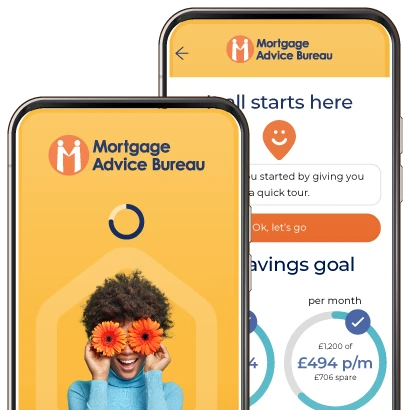In this article, we’re exploring the concept of the age old saying, ‘money can’t buy you happiness’. Whether you believe this to be true or not, it certainly seems that money can, at times, cause us unnecessary worry and stress.
Our recent study showed that almost a third of Brits try to cope with money problems alone, and nearly one in ten would shut the problem away and try not to think about it for the time being. Bottling these emotions up is not good for your mental or physical health, so we’ve partnered with financial psychologist, Kim Stephenson, to find out how we can all control our emotions better and start enjoying a positive relationship with money.
1. What matters to you most?
A lot of negative emotions associated with money, such as embarrassment, shame and guilt can come from the pressure we put on ourselves to “keep up with the Joneses”. However, rather than competing to try to impress others, think about what really matters to you most and be grateful for what you already have. You might find that jotting down a few things a day that you’re most grateful for, whether that’s the weather, a text from a friend, your dog’s companionship etc. This gives you something positive to focus on, rather than the negatives.
So, when you’re next feeling overwhelmed by your finances, remember to focus on what’s most important to you (e.g. health, relationships, or career progression) as this is a great way to improve your overall happiness.

2. Handle stress the right way
The way our bodies handle stress stems right back to our hunter/gatherer instincts - it’s wired into human nature. The flight (run away), fight (deal with it) or freeze (do nothing) response that our bodies are conditioned to is great when there is an actual physical threat or dangerous situation, as it helps us survive. However, this response isn’t the best one when there isn’t anything physical to fight, for instance, if we’re worried about our debts building up, and it can actually lead to physical and mental problems if not dealt with in the right way.
Two ways you can tackle this is to practice meditation and/or yoga. You may have heard of mindfulness, which is becoming an increasingly popular relaxation technique to help combat stress and anxiety. Both methods help you stay in the present and focus on your breathing and senses. They’re great ways to help calm you and give you some time out to focus on what’s important. If you’re interested, there are various different mindfulness apps to help get you started.
3. What’s your purpose?
It’s a proven fact that having a purpose in life is strongly linked to happiness (more so than money), so have a think about how you’d like your life to be and what changes you could make to give it more meaning. It doesn’t have to be anything mega ambitious, perhaps it’s just something small that can help you become the ‘you’ that you want to be. For instance, you could find a hobby that you really enjoy, spend more time with a relative or friend that you don’t see much of, or perhaps you’d like to work at being the best parent you could possibly be to your child.
If you’re struggling to do this, try differentiating your needs from your wants. This can be difficult as all we really need is shelter, food, water, safety and companionship, but if you can give it a go, it’s a good place to start getting you thinking. Try this specific exercise which has been shown to help you start prioritising your spending:
Ask yourself, what you’d do with unlimited money, would you:
a. Spend money on whatever you fancy, whether it’s a need or something you really want, or something you just fancy having because you saw it online or one of your friends had it
b. Spend money first on needs, then on the things you want, and work down the list until you have committed all the money?
If you can learn to do B, you’re on the right track. It’s also wise to avoid focusing on material wants as this will enable you to make better informed spending decisions in future.
4. Have a ‘rainy day fund’
We’re conditioned to want things right now, rather than putting money away to protect what we’ve already got. Therefore, we often feel the urge to spend whatever spare money we have, rather than saving. However this can lead to feelings of guilt and regret when we later realise that the money has been wasted on perhaps a one-off purchase, rather than saving it for an unexpected bill or putting it towards something that gives your life more meaning (back to step three), for instance, starting a hobby, a business or saving to protect your family home.
5. Don’t suffer in silence
Many of us feel uncomfortable talking about money, so much that we’d rather sweep any issues under the carpet and pretend they aren’t happening. Even if we don’t have money issues, the topic of money is often still treated as taboo, but talking about money is a good thing, especially if you need help. This doesn’t mean you have to delve into your whole financial history but just try to feel more comfortable with reaching out when you need to. There are a few ways you can do this:

Choose who you speak to wisely
Even if you just talk to one person who you trust and are close to, that’s better than nobody. It might feel difficult to begin with, but as the conversation opens up, things should become easier. Once you’ve built up your confidence speaking to one person, it may feel less daunting turning to a professional for help.
Seek professional advice
There are various charities and organisations offering free advice and an opportunity to talk about any money problems you’re having. Citizens Advice have specialist case workers who can help with debt management, there’s also Step Change Debt Charity and National Debtline.
Remember what matters to you most
Remember what you’re grateful for and how you want your life to be (step one). Try to focus as much as you can on this as it will help keep the emotions that evoke stress and panic at bay. This will also allow you to communicate more clearly and say what you want to say.
There’s a lot of emotions involved when it comes to money, but learning how to control these emotions can help when you’re struggling and can ultimately make you happier, and everyone could benefit from a dose of extra happiness, right? Also, if you’re feeling happier, and therefore less stressed, you’re more likely to make better decisions in the long-term.
If something is bothering you, whether money-related or otherwise, we encourage you to break the silence and get talking as those with a support network are most likely to recover and come out the other end feeling happier and more positive.
Important information
Your home may be repossessed if you do not keep up repayments on your mortgage.
There may be a fee for mortgage advice. The actual amount you pay will depend on your circumstances. The fee is up to 1% but a typical fee is 0.3% of the amount borrowed.
Related Articles
Why has my mortgage application been declined?
For many prospective homeowners, having a mortgage application accepted is an essential step to getting onto the property ladder.
Can I get a mortgage despite my debts?
Even if you have debt, you can still increase your chances of getting a mortgage by building your credit score up.
Money talks: discussing finances with friends and family
Finances can be a tricky subject to bring up in conversation at the best of times - even with someone you’re close to, such as your partner or a close family member.
No posts currently available







